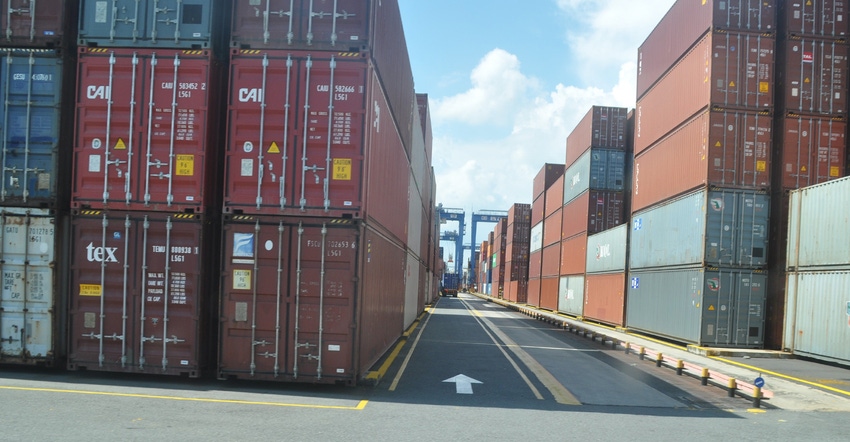September 16, 2020

“Trade deficit soars to 12-year high despite Trump’s promises to wipe it out” — Salon.com, Sept. 5, 2020
Agriculture, are you tired of winning yet?
Back in late 2016, a friend posed a similar question to me. My response was, it’s too early to tell, but rather we should ask, will we be more tired of losing? Within a few weeks after the election, we began this journey towards our destiny; formally withdrawing from the 12 nation trade pact negotiations — aka, Trans-Pacific Partnership — culminating with the unilateral declaration of a trade war, not only with adversaries, but also with our most favored allies and trading partners.
To date, the trade war continues, unabated, costing American consumers and businesses billions of dollars in economic buying power for every year that passes without a satisfactory conclusion.
These headlines, though sensational, are supported by data. Rather than the trade deficit narrowing and disappearing entirely, it continues on its own path, which was influenced by decisions made four years ago.
Take trade with China, for instance. U.S. Census Bureau Trade Data shows U.S. exports dropped from $14.2 billion in 2016 to $7.9 billion in 2019. In coarse grains, it plunges from $2.115 billion to $191 million. Currently, based on bea.gov data, our deficit grew by $10.1 billion in July 2020 from June’s $53.5 billion.
Never mind current data which suggests a surge in recent weeks to China. We are merely treading water and have delayed the inevitable outcome of an ill-conceived strategy. One thing is certain: We will never get back sales we lost in the first years of the trade war, and it will take even more time to recover to pre-trade war levels.
Meanwhile, America’s share of exports to China have dropped dramatically, while Brazil’s share has rapidly increased, giving our competitor greater access to future markets, due in part to increased Chinese investments in their infrastructure. It is a concerning indicator that our agricultural industry may remain as supplier of last resort while competitors are emboldened to expand and reap the rewards of a strategic alliance with China.
The news gets worse when combining current year data with historical data. Through May 2020, our surplus trade balance narrows from $16.58 billion in 2016 to $2.864 billion, while total agricultural exports declines from $129.597 billion to $92.266, in the current fiscal year.
If one were to search for good news amidst this disturbing downward spiral, the wheat industry has made inroads with China, demonstrating the high value of American grown hard red winter wheat necessary to produce high quality products for their baking industry. It certainly is a plus, generating new sales for the Kansas wheat industry. That said, it is not enough, nor will it bring about full recovery from our economic woes.
So, what is the cure that so deftly evades our grasp? For one thing, it begins by admitting we have a problem. A very, very big problem.
Rather than doubling down with an angry denial with rhetoric that seeks to fix the blame on everyone else but the choices we have made, we must begin to acknowledge our role as an enabler for the faulty rationalization, which says it was always the other political party’s fault.
Agriculture, we are in this together, along with the rest of America. Are you tired of the political bickering, the finger pointing and backstabbing? Are you tired of the lying campaign ads and everything connected to this election cycle? Then raise your hand and take ownership. It is your fault, and it is my fault. We, the people have let this happen on our watch.
Once we take ownership, we must resolve to work together, even with people who sit across the aisle. Yes, we must work with those people who disagree with us, and let’s do the work of restoring not only the people’s faith in good governance, but also by actually doing the work required for good policy to be successful. Our form of a democratic republic demands it.
If we are not willing to do our part, we need to get out of the way for those who are willing to make it happen. This applies to all folks, citizens and public servants alike.
Let’s rebuild our house, for the good of all America.
Penner is a Marion County farmer and past president of the National Association of Wheat Growers. His email is [email protected].
About the Author(s)
You May Also Like




